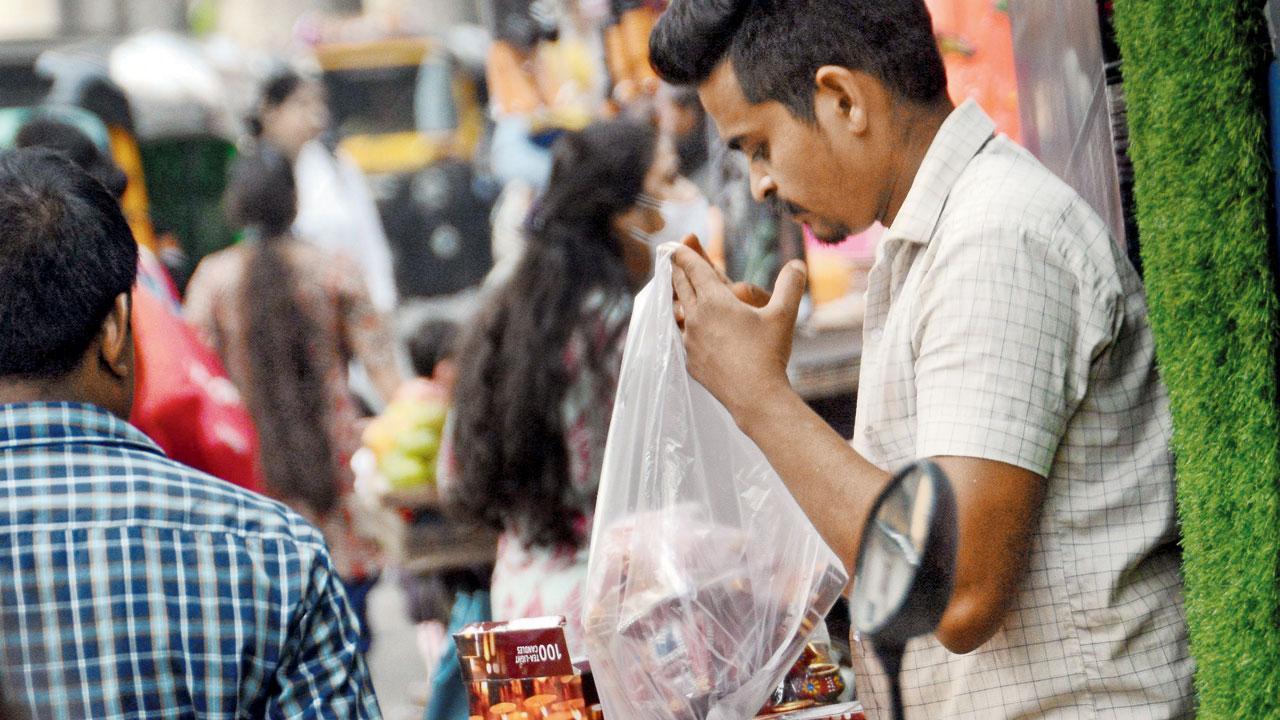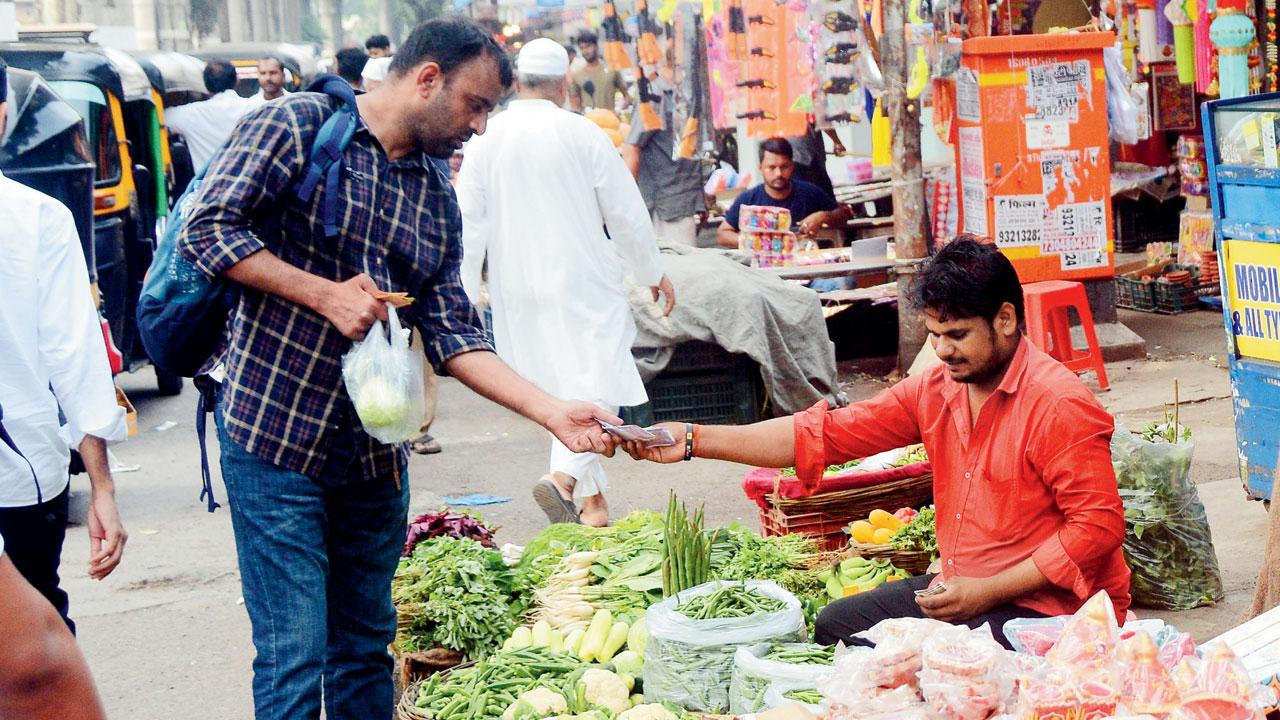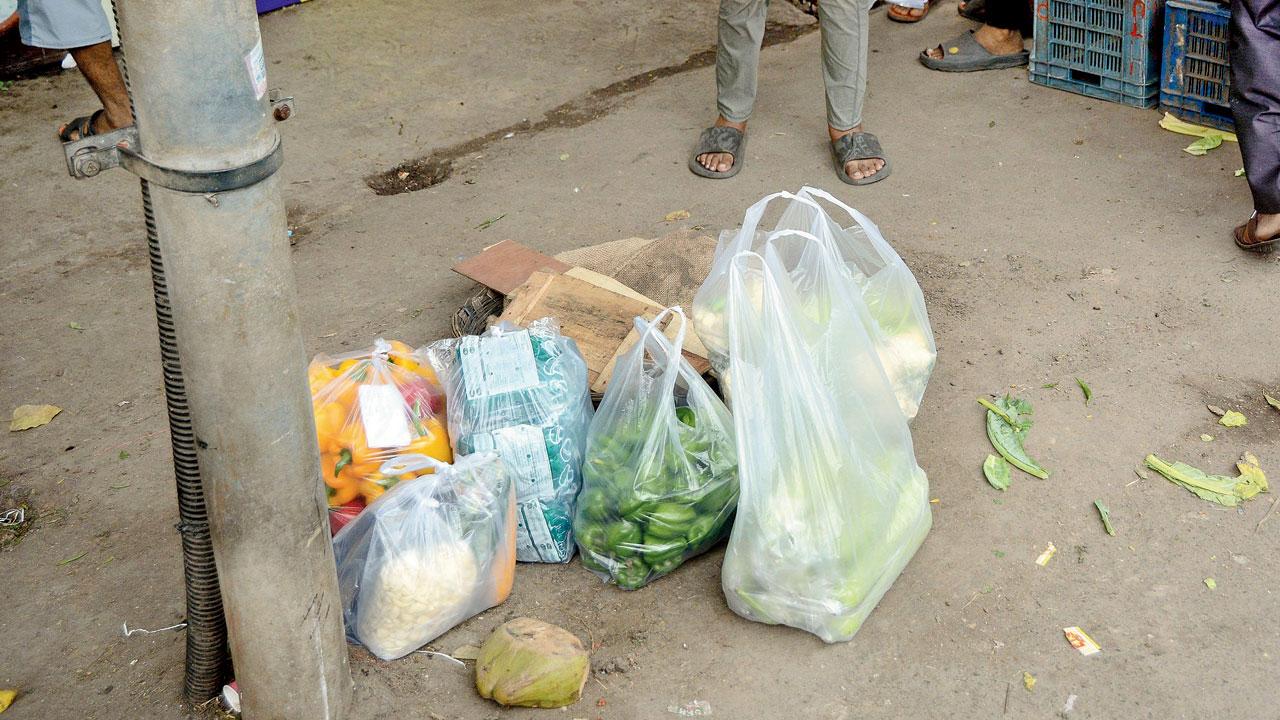As city begins annual drive against plastic use, activists and experts call out lack of focus on root-cause of the problem

Plastic bags with a weight of less than 60 GSM are banned. File Pic/Sayyed Sameer Abedi
Activists and environment experts have flayed the BMC for targeting the end users of banned plastic bags (hawkers and consumers) instead of getting to the root cause of the problem. They have asserted that action should be taken against manufacturers instead, but the civic administration has been turning a blind eye to their demands. As the civic body relaunched action against banned plastic bags and products this week, environmental activists and experts have called this the BMC’s annual knee-jerk action which does not yield any big results as the issue remains unaddressed.
ADVERTISEMENT
The BMC, on Monday, started penalising shopkeepers and establishments once again for using plastic bags and products. Civic teams checked 1,159 establishments and found 59 cases of violations of the notification against single-use plastic bags. The teams seized 87 kg of single-use plastic items and collected Rs 2.95 lakh in fines, with a penalty of Rs 5,000 in each case. The penalty structure involves a Rs 5,000 fine for first-time offenders, followed by a Rs 10,000 fine for repeat offenders. For individuals who violate this prohibition for a third time, the penalty is set at Rs 25,000, along with a three-month prison term. However, activists who have been working for a ban on plastic for years are sceptical of the action taken by the BMC.
 Vendors buy single-use plastic bags as they are inexpensive. File Pics/Sayyed Sameer Abedi
Vendors buy single-use plastic bags as they are inexpensive. File Pics/Sayyed Sameer Abedi
“The BMC relaunches action randomly to generate publicity and create a perception that they care for the environment. Nothing has changed nor will it change. The policy or action proposed is flawed. It creates incentives for corruption for municipal inspectors. A Rs 5,000 fine is ridiculous. We had suggested a Rs 50 fine on users. When users dry up, manufacture and sale will stop,” said activist D Stalin. The Maharashtra Non-Biodegradable Garbage (Control) Act was framed in 2006 while the Maharashtra Plastic and Thermocol Products Notification was framed in 2018 with strong restrictions. Later on, there were five amendments which diluted the initial ban.
According to environment activist Afroz Shah, the law is necessary and the penalty will continue till the eradication of plastic pollution. “The legislature thought it fit to impose penalties on citizens to make the law effective. If someone wants to challenge the law they will have to go to the courts. But at the same time, a social transformation with behavior change is also necessary. A family that buys a plastic product or a product wrapped in plastic should be aware of its effects on the environment. Even as per EPR (extended producer responsibility), the companies producing plastic are equally responsible to take back plastic and there must be strict monitoring by government authorities,” Shah said.

Debi Goenka, another activist, said manufacturers and wholesale dealers should be prosecuted in order to ensure strict implementation of the ban. “Even the corrupt BMC officials should be charged.” Viren Shah, president of the Federation of Retail Traders Welfare Association (FRTWA), said, “If no plastic bags are made anywhere in India and no imports are allowed, then by default the issue will be resolved. Why don’t the central and state governments collectively ban plastic manufacturers?”
According to Shah, while a number of people discourage the use of plastic at shops, smaller establishments, hawkers, paan stalls, and fruit and vegetable vendors will continue to buy single-use plastic products as they are the only inexpensive packaging solution during the monsoon. “The government should offer a cheaper substitute to single-use plastic products and promote jute or cotton bags at subsidised rates and without taxes.”
What does the ban cover
As per the government notification, disposable dishes, cups, plates, glasses, cutlery, straws, stirrers, bowls, containers with plastic coating or plastic lamination are banned. Additionally, sweets packing boxes, invitation cards, cigarette box coverings, plastic sticks used for balloons, plastic flags, earbuds made of plastic, and ice-cream sticks are also banned. All kinds of carry bags of all thicknesses, non-woven polypropylene bags having a weight lesser than 60 GSM, plastic and PVC banners of less than 100 microns, and plastic and thermocol used for decoration are banned.
Rs 5,000
Fine for first-time offenders
 Subscribe today by clicking the link and stay updated with the latest news!" Click here!
Subscribe today by clicking the link and stay updated with the latest news!" Click here!







